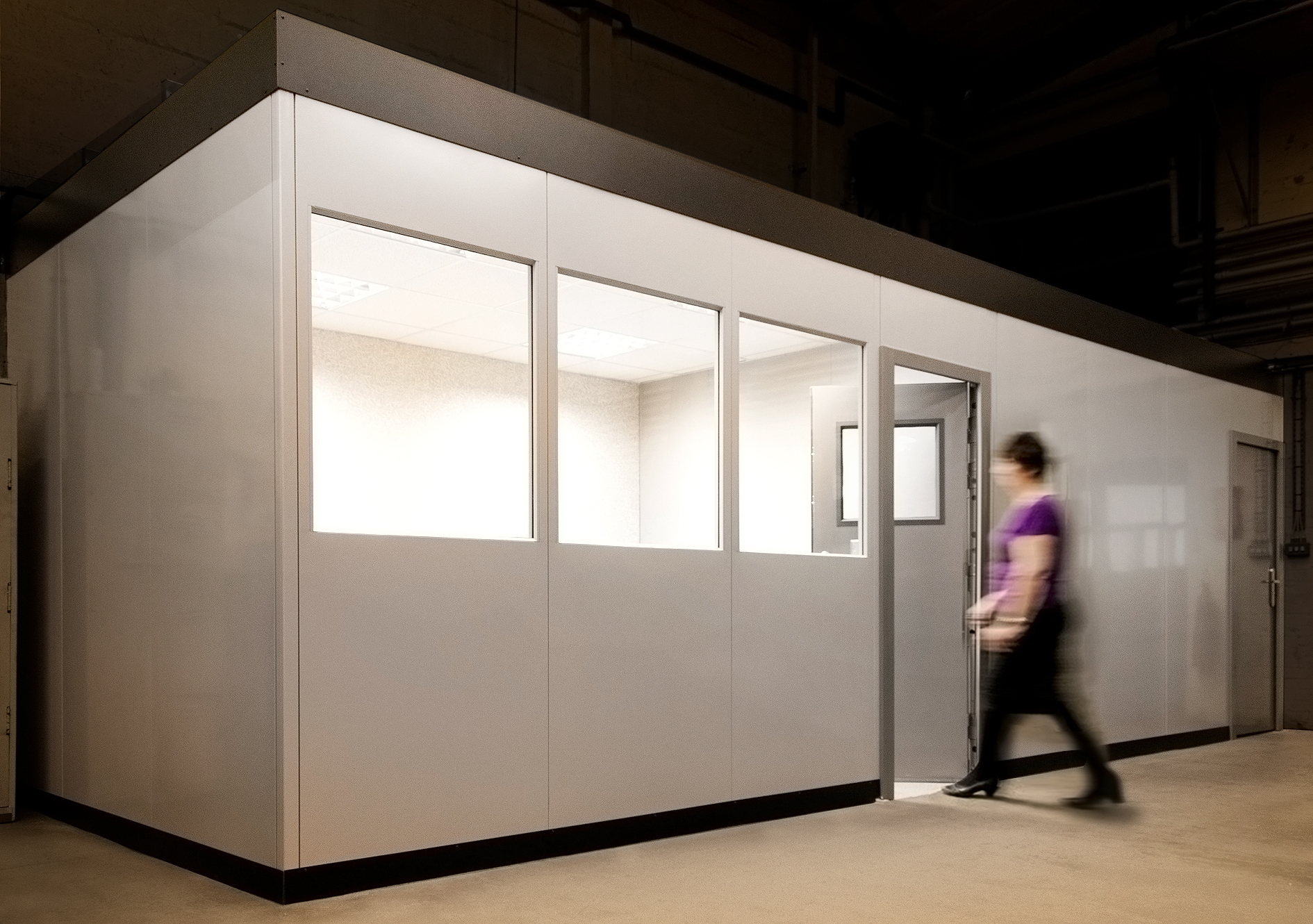When it comes to constructing a mezzanine floor, selecting the right material is a critical decision that can significantly impact the functionality, durability, and aesthetics of the space. In this blog post, we’ll delve into the various materials available for mezzanine floors, considering factors like load capacity, cost-effectiveness, and suitability for different applications.
Steel Mezzanine Floors: Strength and Versatility
Steel is a popular choice for mezzanine floors, and for good reason. It offers exceptional strength and durability, making it suitable for a wide range of applications. Steel mezzanine floors can support heavy loads, making them ideal for industrial and commercial settings where storing heavy machinery or bulky inventory is common. Additionally, steel is known for its fire-resistant properties, enhancing safety in the event of a fire. While steel mezzanine floors may have a higher upfront cost compared to other materials, their longevity and resilience make them a cost-effective choice in the long run.
Plywood Mezzanine Floors: Versatile and Budget-Friendly
Plywood is a versatile and cost-effective material for mezzanine floors. It’s often used in less demanding environments where heavy loads are not a primary concern. Plywood mezzanine floors are relatively easy to install, making them a practical choice for businesses looking to expand their space without extensive construction work. However, it’s essential to note that plywood may not be as robust as steel, so it’s crucial to assess the intended use of the mezzanine before opting for this material.
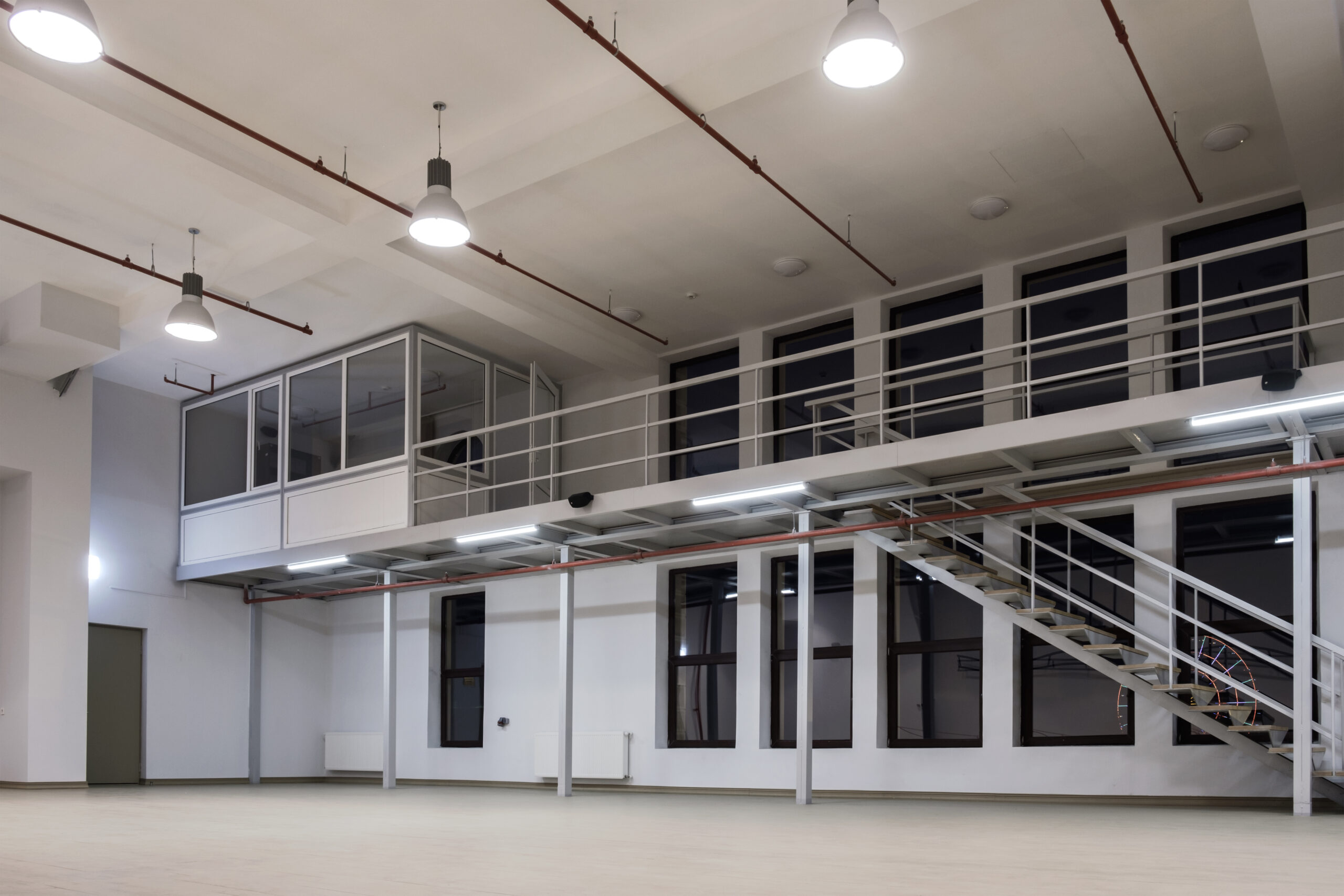
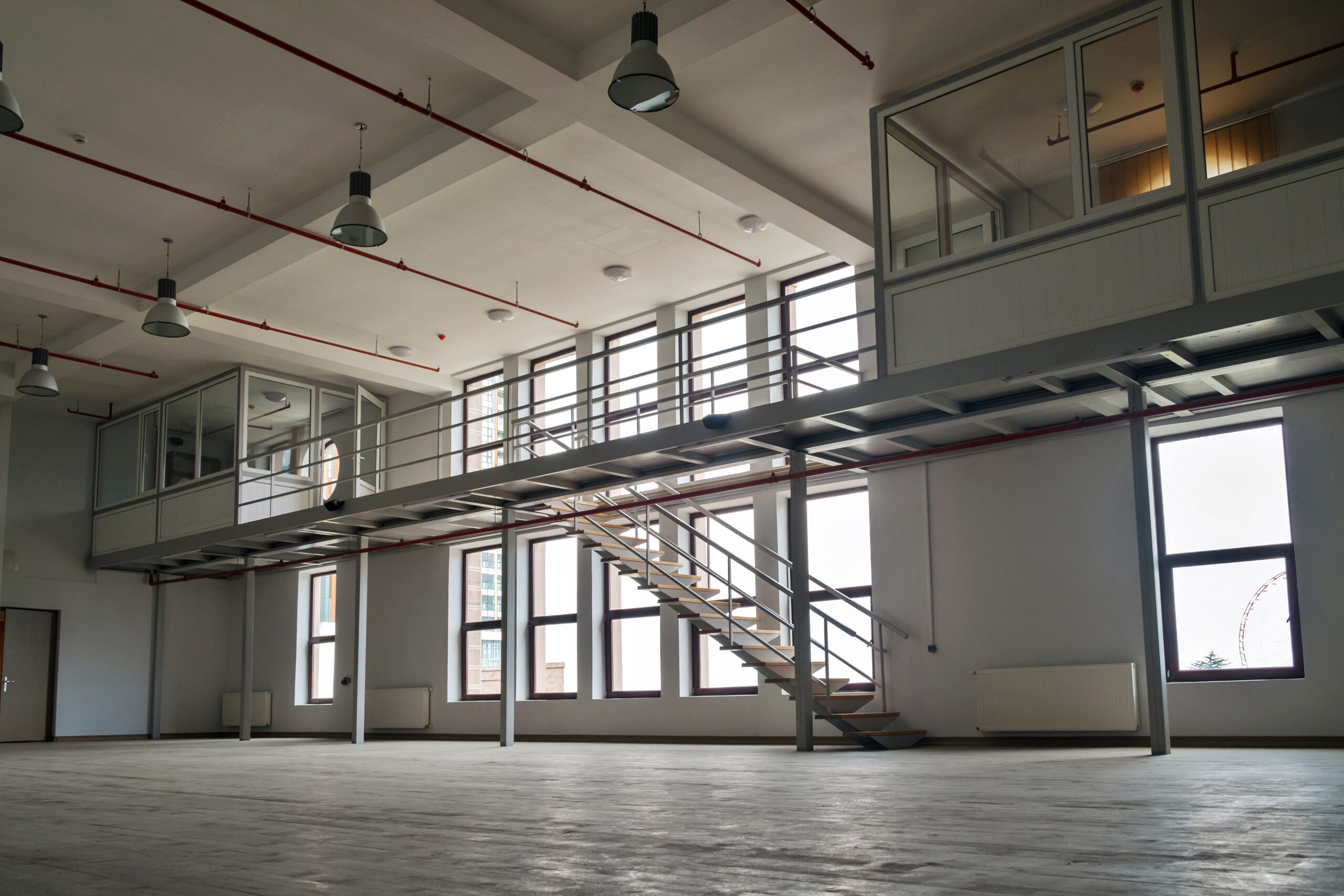
Concrete Mezzanine Floors: Durability and Stability
Concrete is synonymous with durability and stability, making it an excellent choice for mezzanine floors in industrial settings. It can withstand heavy loads and is resistant to wear and tear, ensuring a long lifespan. Concrete mezzanine floors also provide excellent sound insulation, making them suitable for spaces where noise control is essential. While concrete floors may require more extensive construction work and have a higher upfront cost, their ability to endure challenging conditions and provide a stable surface makes them a worthwhile investment for many businesses.
Composite Mezzanine Floors: Balancing Strength and Cost
Composite mezzanine floors combine the best of both worlds, offering a balance between strength and cost-effectiveness. These floors typically consist of a steel frame with a plywood or particle board decking. This combination provides the strength and load-bearing capacity of steel while keeping costs relatively lower than a solid steel floor. Composite mezzanine floors are a popular choice for businesses seeking a cost-efficient solution without compromising on durability and versatility.
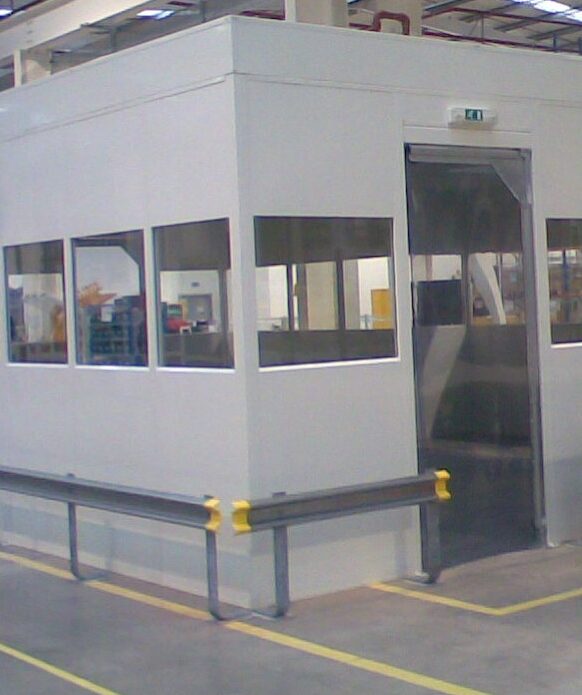

Glass Mezzanine Floors: Transparency and Modernity
For a modern and transparent look, glass mezzanine floors are an intriguing option. These floors use glass panels supported by steel or other materials to create an open and visually appealing space. Glass mezzanine floors are ideal for areas where natural light and aesthetics are paramount, such as galleries, museums, or modern office environments. While glass floors may not support heavy loads, they excel in providing an elegant and airy atmosphere. Additionally, they can be used in conjunction with other materials to achieve a balance between aesthetics and functionality.
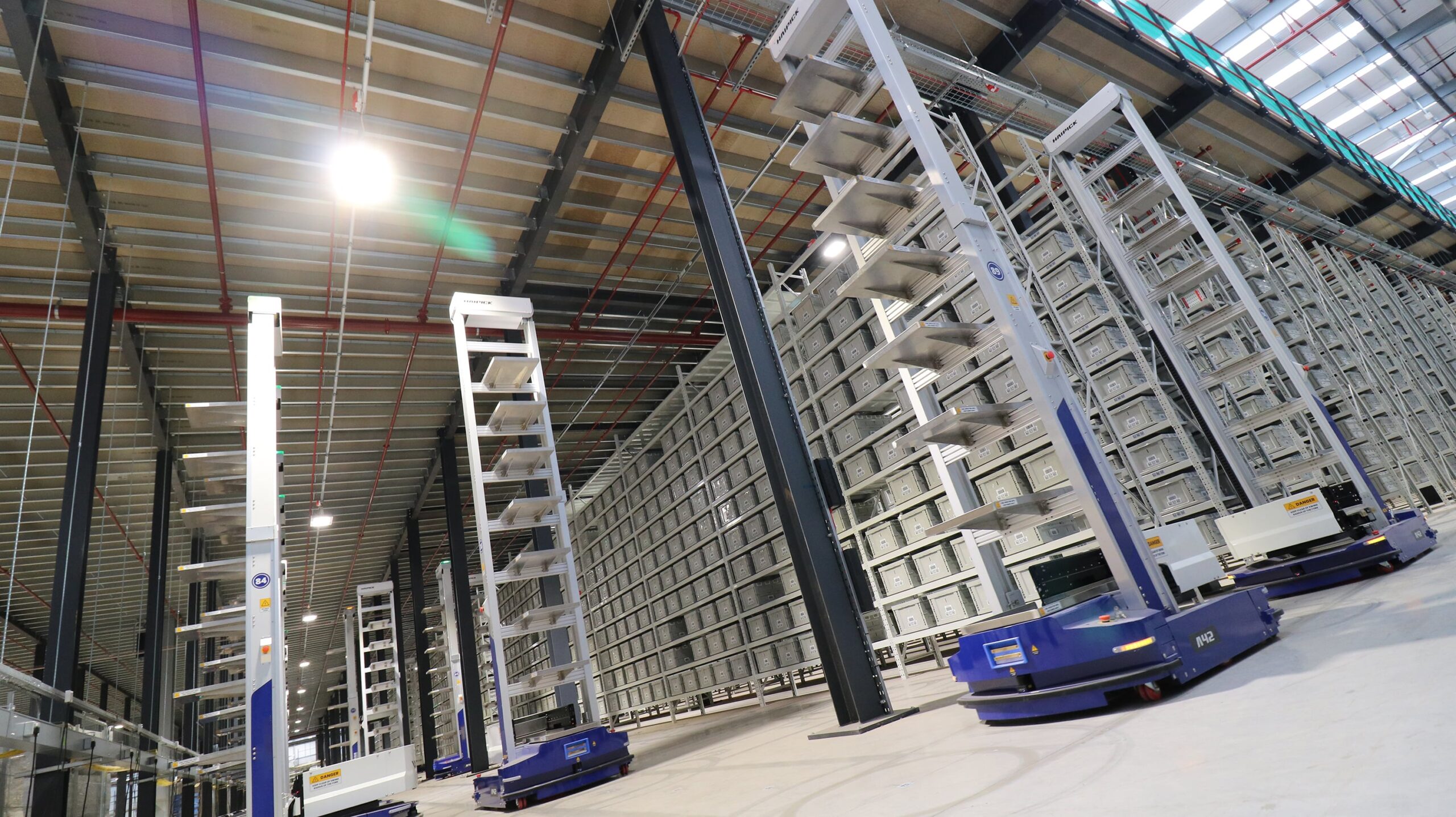
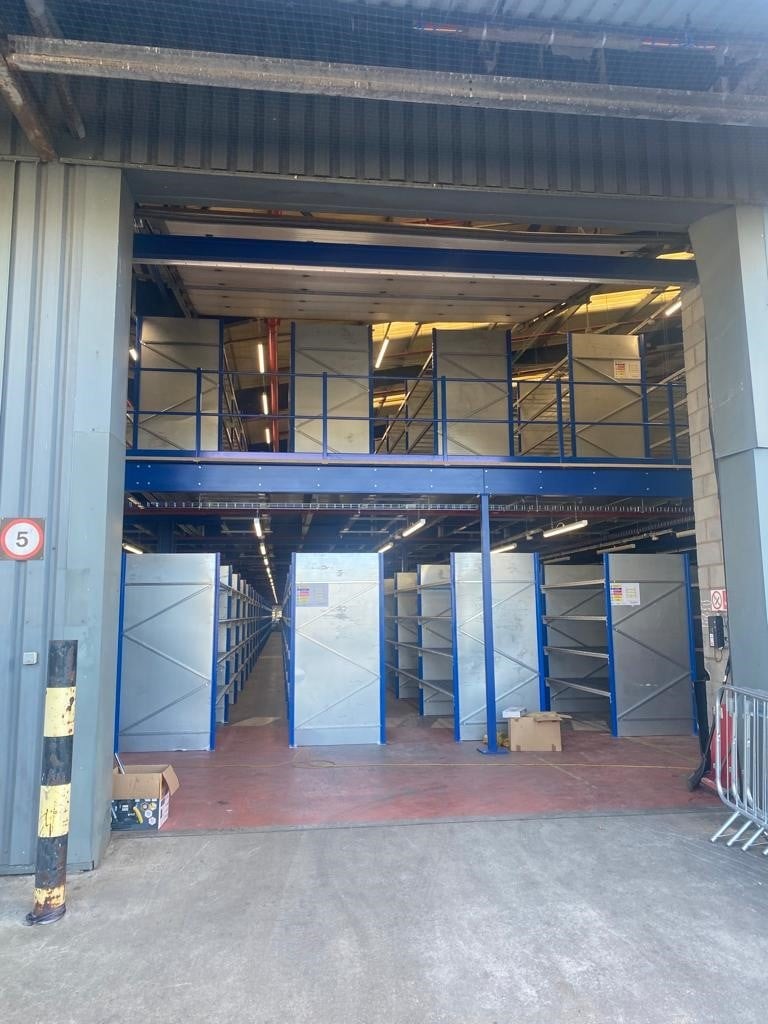
Raised Access Mezzanine Floors: Versatility and Accessibility
Raised access mezzanine floors are designed with versatility and accessibility in mind. These floors are raised above the existing floor level and are supported by a steel structure. They are commonly used in office environments, data centres, and industrial settings where easy access to utilities, such as cabling and piping, is required. Raised access floors offer a clean and organised space below the floor surface, making maintenance and modifications hassle-free. While they may not be suitable for heavy storage, their adaptability and convenience make them a valuable addition to certain spaces.
Conclusion: The Right Material for Your Mezzanine
Selecting the best material for your mezzanine floor ultimately depends on your specific needs and budget. Steel offers unparalleled strength and resilience, making it suitable for heavy-duty applications. Plywood provides versatility and cost-effectiveness for less demanding environments. Concrete ensures durability and stability, ideal for industrial settings. Composite materials strike a balance between strength and cost. Evaluating your requirements and consulting with professionals can help you make an informed decision and create a mezzanine floor that meets your unique needs. Contact the team of mezzanine flooring experts at PD Industrial today.
